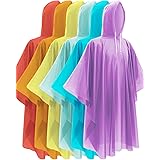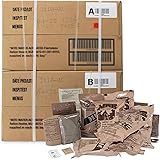Empowerment Through Knowledge
Taking Control in Emergencies
One of the biggest reasons I started learning first aid was to feel empowered, especially in emergencies. If you’ve ever been in a situation where someone needed help, you know how helpless you can feel. It’s like your brain just freezes, right? But when you’re trained, you know exactly what to do. Not only does it calm you, but it helps you feel in charge of the situation.
In learning first aid, you gain confidence. Knowing that you have the tools to potentially save a life is unmatched. This isn’t just about you; it’s about your loved ones, neighbors, or even strangers who might find themselves in distress. When I learned basic CPR and how to treat wounds, a weight lifted. Finally, I felt prepared for what life might throw my way.
Moreover, that confidence extends beyond just being able to help. You inspire those around you. Friends and family who see you taking the initiative often feel encouraged to learn it too. It’s like a chain reaction—a bunch of people feeling empowered together.
Life-Saving Skills
Knowing What to Do
Let’s be real; accidents happen. Whether it’s a minor cut or something more severe like cardiac arrest, knowing the right steps can make a huge difference. During a camping trip, I encountered someone who had a nasty fall and cut his arm. Thanks to my first aid training, I was able to clean and bandage the wound and ensure that it didn’t get infected.
Having these skills can literally mean the difference between life and death. Accidents and emergencies don’t announce themselves; they just happen. Think of it as your superhero moment—being ready when others aren’t. I’ve come to realize that even simple things like treating burns or knowing how to handle choking can be absolutely crucial.
When you know what to do, you also ease the fear that comes with the unknown. Panic often ensues during emergencies, which can very well worsen the situation. By being trained, you create a calmer environment for those in need, guiding them through what can seem chaotic.
Being Prepared for Natural Disasters
Equipping Yourself with Relevant Knowledge
In my own neighborhood, we often talk about the possibility of natural disasters. Whether it’s earthquakes, floods, or storms, they can strike at any moment. Learning first aid has become an integral part of my preparedness plan. It’s not just about having supplies; it’s about knowing what to do if the worst happens.
During one of our community meetings, we had a guest from the Red Cross come in and share insight about first aid in disaster scenarios. The interesting part was how many people hadn’t considered that an emergency isn’t just about injuries. It’s also about stress management and emotional support. First aid training arms you with the tools to help not just physically but mentally.
== > What if ... Get a FREE Subscription to PREPARE
The thrill that comes with being part of a community that embraces preparedness is empowering. Knowing we’re all ready to help each other out during disasters can provide immense peace of mind. It brings people together, creating bonds over shared responsibilities and readiness.
Boosting Community Resilience
Sparking a Collaborative Spirit
One of the most valuable insights I’ve learned from my first aid training is how it extends beyond individual preparedness. When I got certified, I discovered opportunities to engage with my local community. I joined a local group that emphasizes the importance of first aid training, and it’s been a whirlwind of connection and support.
Resilience goes hand-in-hand with a prepared community. When the people around you are equipped and trained, the community as a whole becomes stronger. We’ve been able to tackle various challenges together, whether organizing training sessions or participating in local safety events.
It’s exciting to think about the ripple effects. By sharing knowledge, we empower one another to face any situation bravely. My community has fostered a space where learning and preparedness are celebrated, making it a friendly and supportive environment for everyone.
Creating a Sense of Responsibility
Thinking Beyond Yourself
First aid training has taught me the beauty of community responsibility. I’ve learned that it’s not just about being prepared for myself, but also about being prepared for my family, friends, and even strangers. It feels genuinely rewarding to know I can offer assistance and support when it’s needed most.
Being responsible for others gives you a different perspective on life. It challenges you to step up and be a part of something bigger. I remember one time when my friend’s kid got a scrape on the playground. Rather than feeling helpless, I jumped right in, used my first aid know-how, and made sure the injury was tended to. It felt good to diffuse what could’ve been a chaotic moment.
On a broader scale, fostering this sense of duty can inspire others to carry the same values forward. It reminds us of our humanity—the willingness to help and support each other in times of crisis. This moral sense of responsibility enriches our lives and those around us.
Frequently Asked Questions
1. Why is first aid training important in emergencies?
First aid training is vital because it equips you with the skills needed to react quickly and effectively in emergencies. It can make a significant difference in the outcome for someone in need, as knowing what to do can prevent further injury or even save a life.
2. How can first aid training help in natural disaster situations?
First aid training prepares you not only for physical injuries but also for emotional support during disaster situations. Understanding how to manage stress and trauma can be just as critical as any physical treatment.
3. What are the basic first aid skills everyone should know?
Everyone should learn basic first aid skills like CPR, how to clean and bandage wounds, how to treat burns, and how to recognize signs of serious conditions like heart attacks or strokes. These skills are foundational in emergencies.
4. Can first aid training benefit my community?
Absolutely! When more individuals in a community are trained in first aid, the collective resilience and ability to support each other in emergencies increases. This can lead to a safer and stronger community overall.
5. How do I get started with first aid training?
Getting started is easy! Look for local Red Cross classes or community health organizations that offer certifications. Many also provide online courses that can give you the theoretical knowledge you need while also offering hands-on practice.






